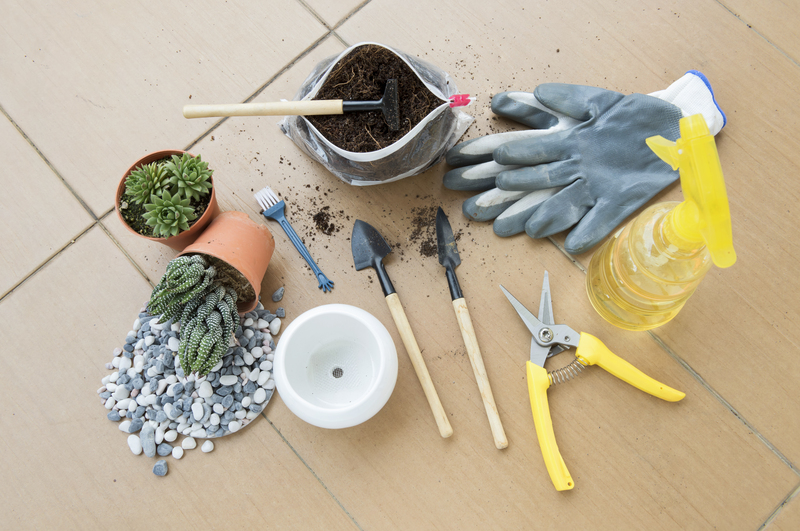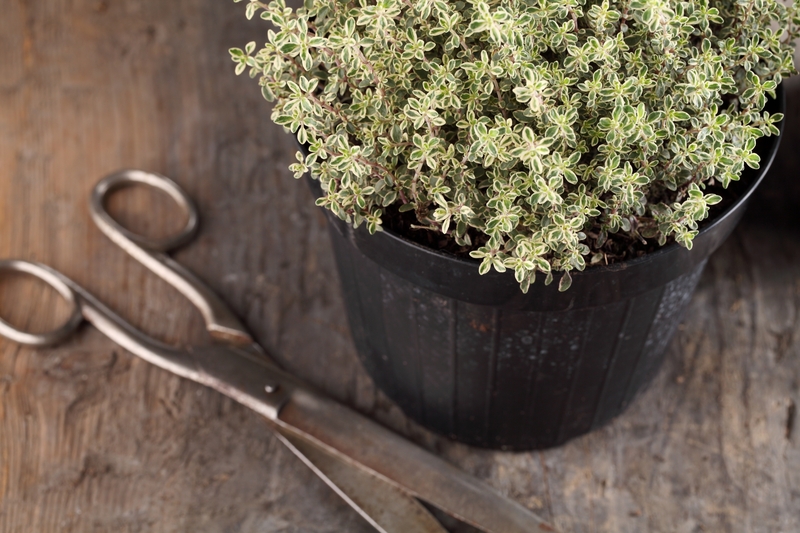Innovative Ideas for a Child-Centric Garden
Posted on 10/06/2025
Innovative Ideas for a Child-Centric Garden
Are you looking to transform your backyard into an enchanting outdoor haven where children can laugh, learn, and grow? Innovative ideas for a child-centric garden can bring a wealth of play, creativity, and education to your outdoor space. In this comprehensive guide, we share inspiring, Google-friendly, and actionable suggestions to help you design a truly magical garden that excites young minds and nurtures a lifelong love for nature.

Why Design a Child-Centric Garden?
A child-friendly garden isn't just a playground--it's a sensory-rich, safe, and stimulating environment that encourages discovery, imagination, and physical activity. With the rising importance of outdoor time for children, designing a child-centric outdoor space can:
- Promote physical health: Running, climbing, and gardening boost exercise levels.
- Encourage creativity: Open-ended play spaces inspire the imagination.
- Foster a connection with nature: Kids develop respect and understanding for plants and wildlife.
- Support cognitive development: Sensory play and gardening spark curiosity and learning.
- Provide a safe haven: Thoughtful design keeps hazards low while maximizing fun.
Key Elements of a Successful Child-Centric Garden
When brainstorming innovative garden ideas for children, every detail matters. The best gardens balance fun, learning, and safety. Here are the essential ingredients for your child-friendly oasis:
- Safety: Use non-toxic plants, avoid sharp edges, and ensure good visibility for supervision.
- Sensory engagement: Incorporate sights, sounds, smells, tastes, and textures.
- Interaction: Offer hands-on gardening opportunities and play spaces.
- Accessibility: Design with all ages and abilities in mind.
- Playfulness: Include whimsical elements and creative structures.
Top Innovative Child-Centric Garden Ideas
1. Edible Gardens for Kids
Planting an edible garden gives children the delight of growing their own snacks. Create raised beds or colorful containers at kid height, and choose easy crops like cherry tomatoes, snap peas, strawberries, and herbs. This hands-on gardening teaches responsibility and builds an early love for fresh food.
- Use fun shapes for beds (such as stars or circles).
- Let kids paint their own plant markers for personalization.
- Plant a "pizza garden" with tomatoes, basil, and peppers for themed fun.
2. Sensory Pathways
Install a sensory path made from varying materials to engage the senses. Pebbles, sand, logs, stepping stones, and fragrant herbs underfoot (like chamomile or thyme) create a unique tactile journey. Encourage children to explore the different textures barefoot (where safe) to deepen sensory awareness.
- Wind the path to create a sense of adventure.
- Add solar lights or painted stones for visual appeal.
- Hang wind chimes or bells nearby for gentle sound interaction.
3. Living Willow Structures
Take natural playhouses to the next level by weaving living willow tunnels and teepees. These living structures grow lusher over time, providing shade, hiding spots, and climbing opportunities. Kids adore weaving leaves and decorating their green hideaways!
- Use flexible willow rods or similar plants.
- Position structures for easy parental supervision.
- Encourage imaginative play inside--like storytime nooks or secret castles.
4. Wildlife Havens
Transform your space into a wildlife-friendly children's garden by inviting birds, butterflies, and beneficial insects. Setting up bug hotels, birdhouses, and nectar-rich flower patches sparks curiosity and instills environmental stewardship.
- Plant pollinator favorites: lavender, sunflowers, milkweed, and nasturtiums.
- Include a shallow water feature (like a birdbath) for wildlife observation.
- Guide children to keep nature journals or draw what they see.
5. Mud Kitchens and Water Play Zones
A mud kitchen transforms dirt into creative and sensory fun. Build simple outdoor "kitchen" counters using old pallets, add pots, pans, and spoons, and let children concoct mud pies or pretend soups.
- Combine a water table or splash area for more liquid fun.
- Plant herbs like mint nearby for adding "ingredients".
- Set up easy-clean flooring like bark chips or rubber mats for safety.
6. Artistic Corners
Foster creativity by incorporating an art garden area. Set up an outdoor easel, paint rocks, arrange a collaborative mural fence, or use chalkboard paint on a shed wall. Consider a sculpture corner made from upcycled garden materials.
- Hang a clothesline for drying painted works or displaying nature collages.
- Plant flowers specifically for picking and crafting--such as zinnias or daisies.
- Encourage seasonal art projects (leaf rubbings in autumn, flower pressing in spring).
7. Fairy Gardens and Miniature Worlds
Invite magic into your backyard with a miniature fairy garden. Dedicate a planter or garden patch to tiny houses, fairy doors, bridges, and paths. Use moss, pebbles, and found natural objects to let your child design enchanted landscapes. This activity blends storytelling, gardening, and crafting in one.
- Select miniature plants like baby's tears, thyme, or sedum.
- Let children craft fairies or gnomes from clay or felt.
- Hide "treasures" around the garden for magical scavenger hunts.
8. Dynamic Climbing and Balance Challenges
Physical challenges are essential for developing coordination and confidence. Integrate natural climbing structures, log stepping stones, or low rope walks within your garden. Balance beams or partially buried tires offer safe, adventurous fun within view of adults.
- Use untreated logs and stumps to create course elements.
- Ensure equipment is age-appropriate and cushioned underneath (mulch or grass).
- Combine with a sensory path for an all-in-one activity loop.
9. Secret Spaces and Hideaways
Children cherish little hideouts. Build a den from bamboo, trailing vines over a trellis, or create a sunken "hobbit house" in a quiet garden nook. Even a simple fabric tent or teepee draped beneath a tree adds adventure and a sense of privacy.
- Plant climbers like sweet peas or nasturtiums for a leafy hideaway.
- Add a cozy blanket or outdoor cushions for comfort.
- Use the space as a secluded reading or napping spot.
10. Nature-Inspired Learning Stations
A child-centric garden is the perfect setting for hands-on learning. Create stations for weather-watching, bug investigation, sun dials, or measuring rainfall. Add magnifying glasses, binoculars, and simple science tools for discovery anytime.
- Install a sundial or homemade rain gauge.
- Provide a magnifying glass for observing leaf textures or insects.
- Label plants and flowers for early readers.
Safety First in Child-Centric Gardens
No matter your design, safety is paramount in kid-centric garden spaces. Follow these guidelines for worry-free fun:
- Choose non-toxic, non-thorny plants and regularly check for mushrooms or hazards.
- Store tools and chemicals out of reach in locked sheds.
- Fence off ponds or water features for toddlers and teach water safety.
- Maintain soft landings where falls may happen (use bark, sand, or rubber matting).
- Ensure play areas are visible from seating or windows.
Choosing the Right Plants for a Child-Friendly Garden
Plant selection plays a big role in a child-safe outdoor garden. Opt for hardy, low-toxic species and those that engage multiple senses:
- Touch: Lamb's ear, grasses, snapdragons.
- Smell: Lavender, mint, scented geranium, pineapple sage.
- Taste: Strawberries, nasturtiums (flowers and leaves), chives.
- Sight: Sunflowers, marigolds, butterfly bush, colourful kale.
- Sound: Bamboo, ornamental grasses swaying in the wind.
Themed gardens can imbue your child-centred garden with a sense of story and wonder. Some inspiring themes include:
A truly child-friendly outdoor space grows with your family. Adapt your garden as kids' abilities and interests change:
The advantages of nurturing innovative, child-oriented gardens extend beyond fun:
Every child deserves a wonderland to call their own. By implementing these innovative child-garden ideas, you'll create a safe, welcoming, and inspiring space that plants the seeds of curiosity, confidence, and creativity. Whether your garden becomes a miniature farm, an art studio, a fairyland, or a science zone, the memories you make together will bloom for years to come.
Start small, evolve with your children's interests, and above all--enjoy the magic of growing, learning, and laughing outdoors!
Ready to dig in? Gather your little ones and embark on the exciting journey of building your own innovative child-centric garden today!
Safeguarding Your Garden from Harsh Weather Assault Boost privacy with these 9 effective and fast-growing hedges Tips to Combat Severe Wind Effects in Your Garden Gardening Aesthetics: Cutting-edge Hedge Trimming TechniquesCreative Themes for Child-Focused Gardens
Maintaining and Evolving Your Child-Centric Garden

Benefits of a Child-Centric Garden
Conclusion: Spark Wonder with Your Innovative Child-Centric Garden
Latest Posts

